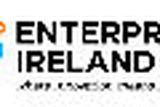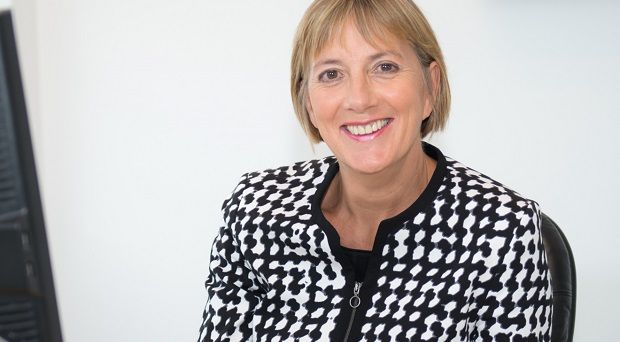Eye on the eurozone


Market diversification is the name of the game for Irish exporters now as Brexit places the spotlight on growth opportunities beyond the UK as a means of spreading risk.
One of the positive outcomes of the Brexit vote last June has been how it is encouraging first-time exporters to consider markets outside of the UK as potential growth centres, looking to the various success stories to date in eurozone markets in particular.
This is not to say that the UK won’t continue to be an important market for the foreseeable future – but rather that things are shifting in terms of the exporting journey Irish companies are likely to take in light of Brexit.
An increasing number are exploring the option of having a diversified portfolio of markets instead of seeing the UK as their first port of call and being over-reliant on our closest neighbour.
A track record of market diversification already exists among Irish companies. As CEO of Enterprise Ireland Julie Sinnamon points out, the UK has been Ireland’s No 1 market for many years but its share of the overall exporting pie has become smaller.
With exports of €7.5bn in 2015, the UK accounted for 37% of total exports by Enterprise Ireland client companies. In 2005, the equivalent figure was €4.8bn, or 45% of the total.
“The UK has continued to grow for us as a market [by 12% in 2015] but the rest of the world has been growing at a faster pace as more companies have diversified their export strategies,” says Sinnamon.
“We are not suggesting that companies should walk away from the UK. It is just that they need to be more strategic in terms of thinking through which markets are the most appropriate for them.”
Julie Sinnamon, CEO of Enterprise Ireland
Eurozone opportunity
The eurozone offers greater opportunity now than it did years ago and there are numerous Irish companies doing well in these markets and achieving critical mass, according to Enterprise Ireland.
Exports by Enterprise Ireland client companies to the eurozone exceeded €4bn for the first time in 2015, having grown from €2.5bn ten years before that. The agency’s ‘Build Scale, Expand Reach’ strategy for 2017 to 2020 is targeting a 50% increase in exports to the eurozone as part of a push to boost overall exports by €5bn to reach €26bn.
With this in mind, extra resources have been made available to help companies to enter eurozone markets, for example through new Enterprise Ireland innovation supports and assistance in acquiring the necessary language skills.
“Innovation is key to success anywhere in the world. Irish companies have to have exceptional products and services to succeed in the eurozone and these might have to be tweaked and customised to suit specific markets,” notes Sinnamon.
“Our three biggest markets in the eurozone are Germany, France and the Netherlands and there are various opportunities for Irish companies in these markets depending on their products and what sector they are in.
“Construction and engineering companies have done very well in Germany, which is impressive as this is like selling sand to the Arabs. Our analysis has shown that the Irish lifesciences sector has also been successful in the eurozone in the past number of years.”
We need your consent to load this Social Media content. We use a number of different Social Media outlets to manage extra content that can set cookies on your device and collect data about your activity.
Early ambition
Aerogen in Co Galway is a prime example of a lifesciences company which has gained a strong foothold in eurozone markets, having prioritised them in tandem with the US from the early days of its existence.
Along with an unrelenting focus on innovation, it is a strategy which has reaped rewards – now a global leader in high performance drug delivery, Aerogen employs a total of 130 people and has annual revenues close to €50m.
CEO John Power founded the company in 1997 and decided to enter European markets in 2000 as part of a global strategy. Europe now accounts for 30% of total sales, making it Aerogen’s second biggest market after the US.
One of the most remarkable things about Aerogen’s success in the eurozone has been the fact that it has managed to succeed in the two markets with the largest indigenous medtech industries.
Germany has the highest absolute number of people employed in the medtech sector, at 175,000, followed by 65,000 in France, according to the latest figures from Medtech Europe. This compares with 29,000 in Ireland where indigenous companies account for a relatively small proportion of total exports.
“Both Germany and France can be protectionist in terms of prioritising the development and purchase of their own medtech products,” says Power.
“To sell into these markets, an Irish medtech company’s technology must be substantially better than anything they have developed already. You also have to be able to make strong arguments around the clinical and economic benefits of the solution using credible evidence.”
In the early days, multinational healthcare companies gave Aerogen a ‘leg-up’ in becoming international as they sold its solution alongside their own capital equipment.
Once markets started to grow substantially, Aerogen found local distributors and put its own resources on the ground – it now has four people based in Germany and three in France.
“Our success in European markets in terms of gaining traction and sales has been largely down to choosing the right distributors and putting additional resources into these markets,” notes Power. “Nothing beats having your own people on the ground to encourage a distributor to achieve sales for your company.”
Eurozone market entry tips:
Germany
• The most important thing you need to know about German business culture is that it is risk averse.
• In Germany, any claims you make around the superiority of your offering must be backed up by facts and evidence.
• Punctuality is considered highly important and being late with anything is unacceptable.
• Contracts in Germany go into great detail. They are helpful because they remove any ambiguity and set expectations for both sides in the deal.
• German industry is frequently subject to sector-specific regulations, standards and norms.
France
• Relationship-building is crucial in French business; it takes time and regular personal contact to build up confidence and trust.
• You will not be on first-name terms with your counterpart until the relationship is very well established after months of regular contact – and possibly not even then.
• Traditional French organisations typically feature a top-down management structure - don’t spend too much time pitching at a level of a prospect’s organisation where there is no authority to sign off on a deal.
• Cold calling is less accepted in France than in English-speaking markets, and therefore less effective. An introduction from a valued contact carries much more weight.
The Netherlands
• Dutch people tend to be direct, giving straight ‘yes’ and ‘no’ answers. If your product or service is not of interest, this will be made clear to you at the end of a meeting.
• Getting a meeting in the first place may be difficult unless there is a clear rationale for it; culturally, the Dutch like to plan and use their time well.
• Proof that a product or service can save a verifiable amount of money will get a favourable hearing in the Netherlands. Frame your proposition in terms of what it does for the customer.
Source: Enterprise Ireland Market Access Guides
To read more about Aerogen’s exporting strategy in Europe as well as tips and advice from CEO John Power, click here.
Sponsored by:



